Introduction
Picture this: You’ve just landed your dream job, aced an exam, or received glowing praise for a project. Instead of popping champagne, a little voice in your head whispers, “You’re a fraud. You just got lucky. Any moment now, they’ll find out you don’t belong.” Sound familiar? If so, welcome to the club of overachievers who suffer from imposter syndrome.
Imposter syndrome (IS) is the persistent feeling of inadequacy despite evident success. First identified by psychologists Pauline Clance and Suzanne Imes in 1978, this psychological phenomenon affects high-achievers who struggle to internalize their accomplishments. While it’s not a clinical diagnosis, its effects are real and widespread. Studies suggest that up to 70% of people experience imposter syndrome at some point in their lives (Sakulku & Alexander, 2011).
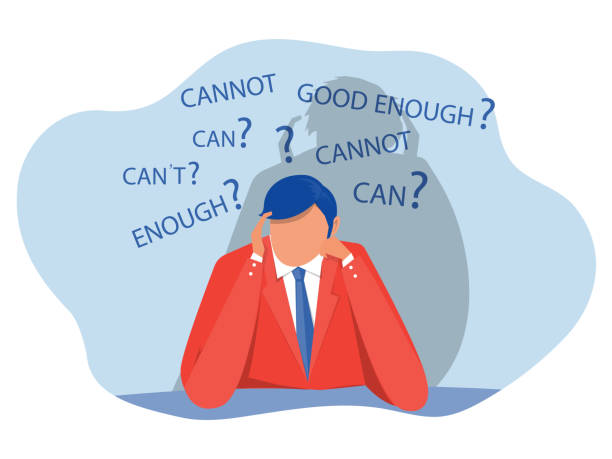
So, what’s going on here? Why do successful people feel like frauds, and more importantly, how can we break free from this cycle of self-doubt?
What is Imposter Syndrome?
At its core, imposter syndrome is a disconnect between perceived competence and actual achievement. People with IS often attribute their success to external factors like luck, timing, or even the pity of others, rather than their own abilities. Common signs of imposter syndrome include-
- Overworking to “prove” oneself.
- Fear of failure or being “exposed” as a fraud.
- Downplaying accomplishments or feeling unworthy of recognition.
Imposter syndrome manifests in different ways, often depending on personality traits or life circumstances. Dr. Valerie Young, an expert on the topic, identified five types of imposters-
- The Perfectionist- Sets impossibly high standards and is never satisfied.
- The Superhuman- Feels the need to excel in all areas, often leading to burnout.
- The Natural Genius- Believes they should master everything effortlessly.
- The Soloist- Prefers to work alone to avoid asking for help.
- The Expert- Feels they must know everything before they’re qualified.
Read More- How to Improve Mental Health?
Who Experiences Imposter Syndrome?
Spoiler alert: Almost everyone. While imposter syndrome doesn’t discriminate, it’s particularly common among certain groups.
- Women and Minorities- Cultural and societal pressures often amplify feelings of inadequacy in underrepresented groups. Women in male-dominated fields, for example, may feel they need to “prove” themselves more than their peers (Corkindale, 2008).
- High Achievers- Ironically, the people who are most accomplished tend to doubt themselves the most. Albert Einstein reportedly referred to himself as an “involuntary swindler,” believing his fame exceeded his abilities.
- Students and Early-Career Professionals- Imposter syndrome is rampant among students transitioning into competitive environments, such as graduate school or the workplace. The pressure to perform often leads to self-doubt.
Why Do We Feel Like Frauds?
The roots of imposter syndrome lie in a complex interplay of psychological, social, and cultural factors-
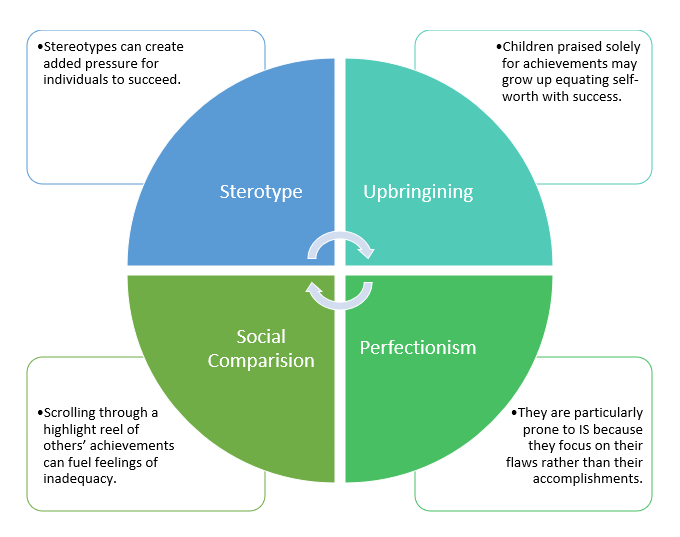
- Upbringing- Family dynamics play a significant role. Children praised solely for achievements may grow up equating self-worth with success. Conversely, those who faced constant criticism may develop an overactive fear of failure.
- Perfectionism- Perfectionists are particularly prone to IS because they focus on their flaws rather than their accomplishments. The “if I’m not perfect, I’m not good enough” mindset sets an unattainable bar.
- Social Comparison- In the age of social media, comparing oneself to others has never been easier—or more damaging. Scrolling through a highlight reel of others’ achievements can fuel feelings of inadequacy.
- Stereotypes and Bias- Stereotypes can create added pressure for individuals to succeed. For example, a woman in STEM may feel she represents all women in the field, amplifying her fear of failure.
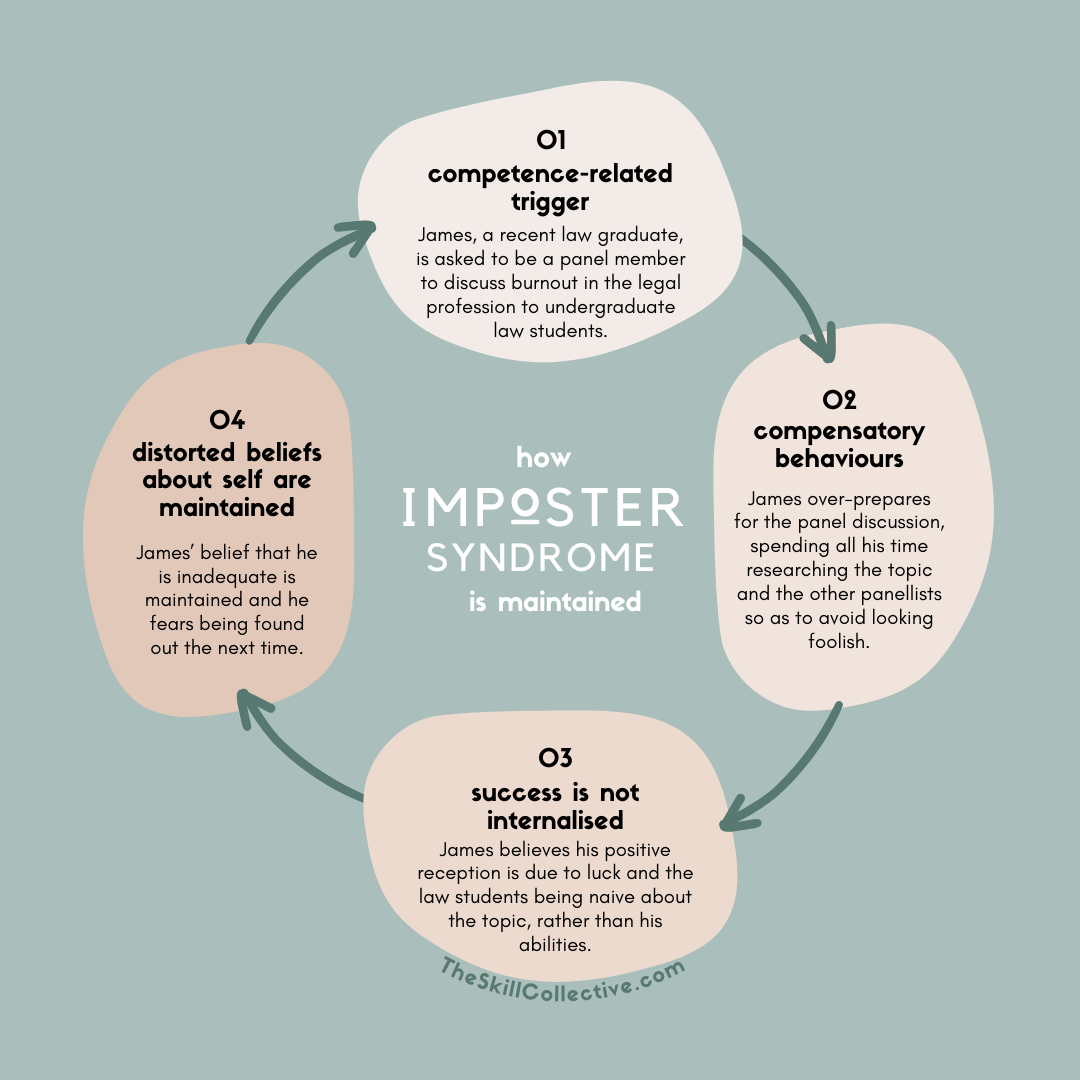
The Consequences of Imposter Syndrome
Living with imposter syndrome isn’t just mentally exhausting; it can have real-world consequences-
- Burnout- Overworking to compensate for self-doubt can lead to stress and exhaustion.
- Missed Opportunities- Fear of failure often holds people back from pursuing promotions, new projects, or leadership roles.
- Relationship Strain- Constantly seeking validation or avoiding vulnerability can strain personal and professional relationships.
How to Overcome Imposter Syndrome?
The good news? Imposter syndrome isn’t a life sentence. Here are some practical strategies to overcome it-
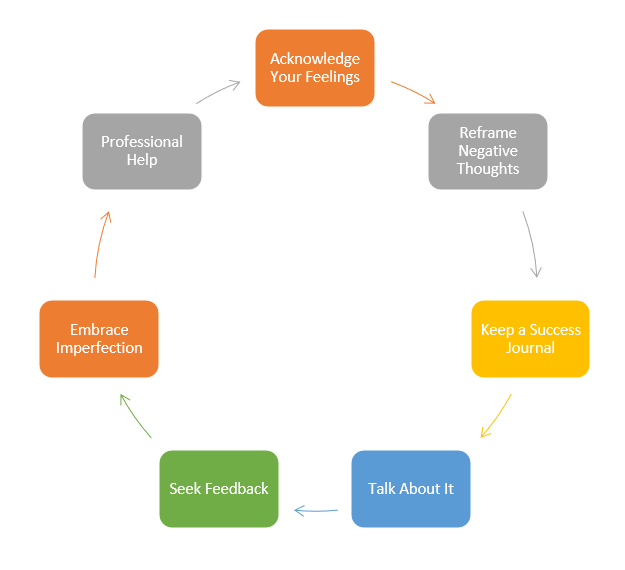
- Acknowledge Your Feelings- Recognize when imposter syndrome is rearing its head. Naming the feeling helps reduce its power. Journaling or talking to a trusted friend can be a good start.
- Reframe Negative Thoughts- Challenge self-doubt by reframing negative thoughts. For example, replace “I just got lucky” with “I worked hard and earned this opportunity.”
- Keep a Success Journal- Document your achievements, no matter how small. Revisiting your wins can help you internalize your successes.
- Talk About It- You’re not alone—discussing imposter syndrome with peers can be surprisingly liberating. Sometimes, just hearing “Me too!” can ease the burden.
- Seek Feedback- Constructive feedback from mentors or colleagues can provide a more balanced view of your abilities.
- Embrace Imperfection- Perfection isn’t realistic—or necessary. Embracing mistakes as learning opportunities can help you grow and let go of unrealistic expectations.
- Professional Help- If imposter syndrome significantly impacts your mental health, consider working with a therapist who can help you address underlying issues.
Read More- What is Growth Mindset
Fun Facts About Famous Imposters
You’re in good company if you’ve ever felt like a fraud. Even some of the most successful people have struggled with imposter syndrome-
- Maya Angelou- Despite her numerous accolades, Angelou once said, “I have written 11 books, but each time I think, ‘Uh-oh, they’re going to find out now. I’ve run a game on everybody.’”
- Tom Hanks- The beloved actor has openly admitted to doubting his abilities, saying, “No matter what we’ve done, there comes a point where you think, ‘How did I get here?’”
- Michelle Obama- The former First Lady revealed in her memoir Becoming that she often felt like she didn’t belong at prestigious institutions like Princeton and Harvard.
Conclusion
Imagine a world where people celebrated their achievements without self-doubt, where everyone embraced their imperfections, and success wasn’t shrouded in fear. Overcoming imposter syndrome isn’t just about personal growth—it’s about creating a culture that values authenticity over perfection.
By normalizing conversations about self-doubt, challenging societal pressures, and fostering supportive environments, we can collectively dismantle the stigma of imposter syndrome. So, the next time you hear that nagging voice telling you, “You’re not enough,” remember: you are.
References
Clance, P. R., & Imes, S. A. (1978). The Imposter Phenomenon in High Achieving Women: Dynamics and Therapeutic Intervention. Psychotherapy: Theory, Research & Practice, 15(3), 241–247.
Sakulku, J., & Alexander, J. (2011). The Impostor Phenomenon. International Journal of Behavioral Science, 6(1), 73–92.
Corkindale, G. (2008). Overcoming Imposter Syndrome. Harvard Business Review.
Young, V. (2011). The Secret Thoughts of Successful Women: Why Capable People Suffer from the Impostor Syndrome and How to Thrive in Spite of It.
Subscribe to PsychUniverse
Get the latest updates and insights.
Join 2,935 other subscribers!
Niwlikar, B. A. (2025, January 5). What is Imposter Syndrome and 7 Important Ways to Overcome It. PsychUniverse. https://psychuniverse.com/imposter-syndrome/



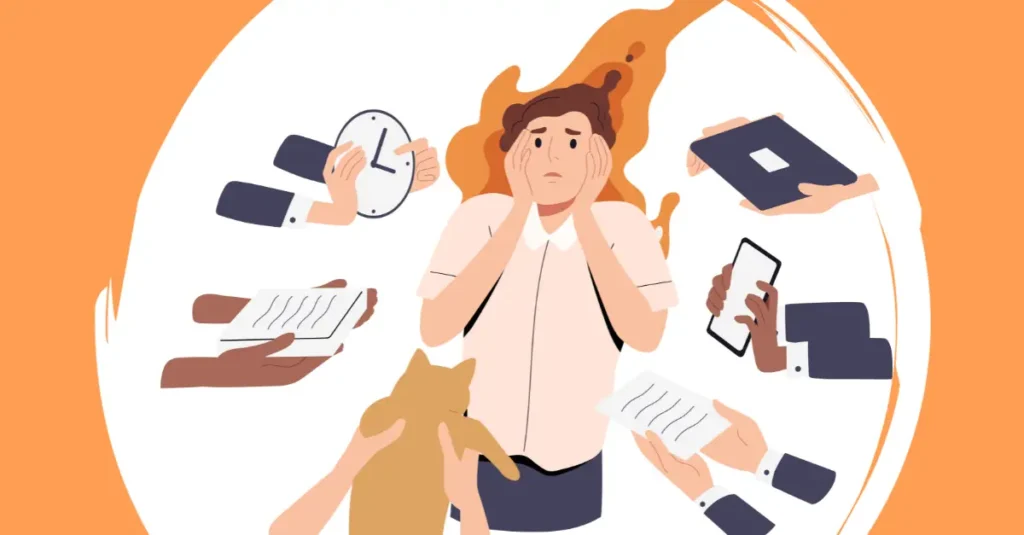
Pingback: What is the Dunning-Kruger Effect and 4 Important Strategies to Overcome It - PsychUniverse
Pingback: What is Self-Sabotage and 5 Insightful Ways to Break this Cycle - PsychUniverse